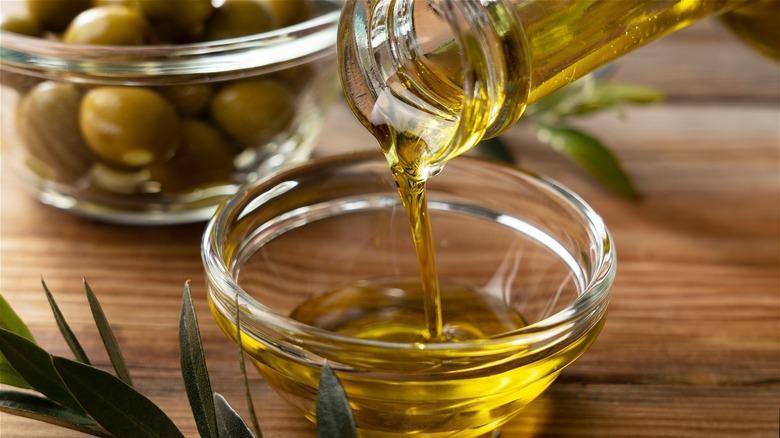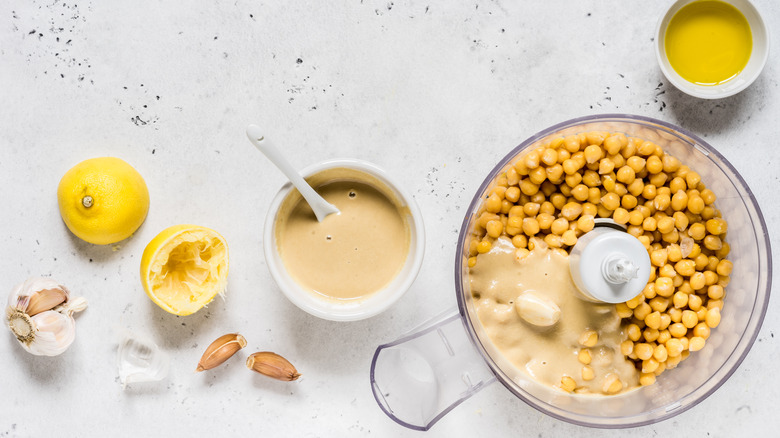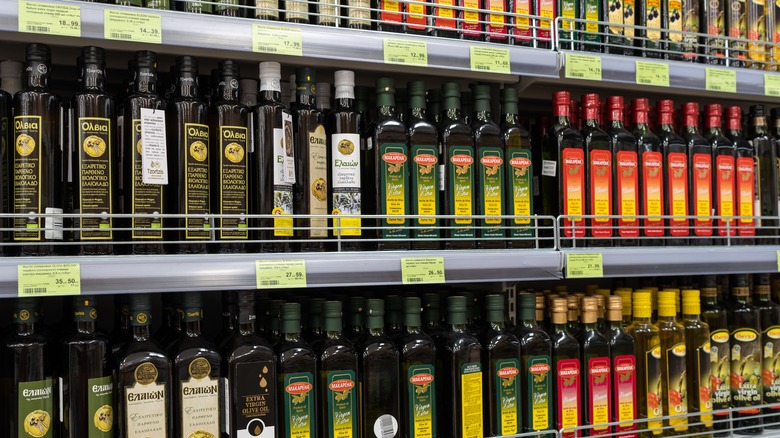Why You Should Consider Skipping The Olive Oil For Hummus
Take it from us, there's no reason why you shouldn't be making your own hummus at home. It not only might save you a ton of money, but the homemade version can be healthier and far more delicious than its store-bought counterpart. Plus, it's relatively easy to make, which can be especially helpful when you're busy and leaving your house to go to the grocery store feels like a huge chore.
Those who have made hummus before know that in its most basic form, a standard hummus recipe will call for chickpeas, tahini, seasonings, and olive oil. However, what most people may be unaware of is that the latter ingredient is actually unnecessary. (This is ultimately great news for you because, well, have you seen how expensive olive oil can get?) So, without further ado, here are some good, but possibly unexpected, reasons your hummus might be better off without the olive oil.
When it comes to flavor, less is more
As we mentioned, one of the main ingredients of hummus is tahini, which is made from ground sesame seeds. Celebrity chef Yotam Ottolenghi maintains (via Eating Well) that since tahini already contains an adequate amount of natural fats, the addition of olive oil to the hummus is unnecessary. He reveals that by making hummus with just tahini, you allow the taste of sesame seeds to really shine through, since the olive oil will not be in the way to dilute the dip.
And if you're still skeptical about an oil-free hummus, let the science convince you: America's Test Kitchen explains that blending olive oil may result in a harsh taste, due to some bitter compounds called polyphenols found in the oil. Normally, the unsavory taste of polyphenols goes unnoticed because it is disguised by fatty acids, but when you blend olive oil (for example, during the preparation of hummus), these fatty acids detach themselves from the polyphenols, making the bitter taste much more noticeable.
Your olive oil may be tricking you
Hummus, an essential dish in the Mediterranean diet, is widely regarded as a healthy, nutrient-rich food that can provide us with minerals like iron as well as a healthy dose of fiber and plant-based protein despite a relatively low carbohydrate content, registered dietitian Jim White told Eat This Not That!
However, this is all assuming that the ingredients used are pure and free of harmful additives. The last thing anyone wants is to be eating something that they think is healthy when the opposite is true in reality. According to Forbes, many Italian olive oils on the shelves are not what they say they are; certain brands may dilute their products with cheaper vegetable oils and other filler ingredients, or simply mislabel them as extra virgin when they are not. While this may not be true of all olive oil brands or as prevalent as was once believed, it could be worthwhile to consider skipping out on the olive oil if you're someone who eats hummus for its reported health benefits.
If you really don't want to let go of your olive oil, though, at least make sure you know what you're getting, and consider waiting to add olive oil to your hummus until the very end to ensure you don't end up with a bitter taste.


